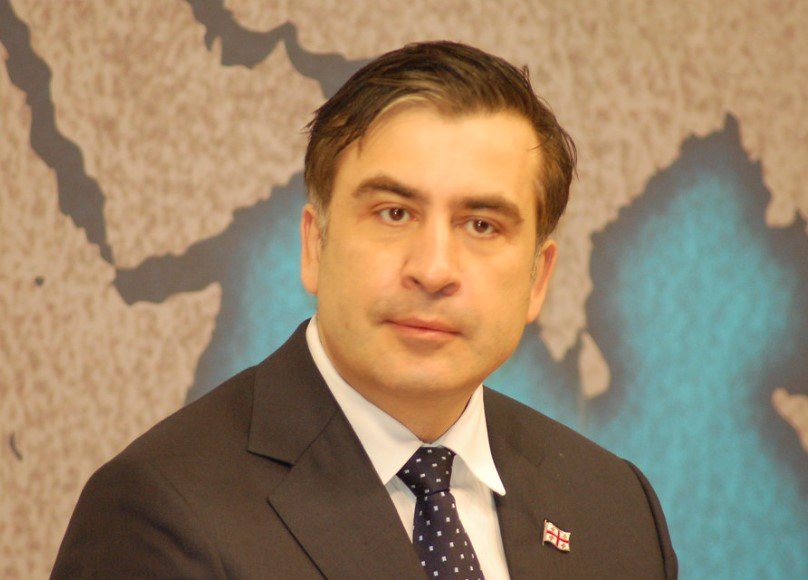Georgian Court Shuts Down Saakashvili’s Last Legal Hope as Political Tensions Flare
A Georgian court has rejected former president Mikheil Saakashvili’s final appeal, deepening a political drama that’s pulled in the West, inflamed domestic divisions, and raised serious questions about Georgia’s democratic future.
His team called it unjust. His supporters say it’s all political. And in a hospital bed, under constant guard, the former president of Georgia is watching the walls close in.
One Appeal, No Hearing, No Relief
Tuesday’s ruling from the Tbilisi Court of Appeals was swift. Perhaps too swift, his legal team argues. The appeal was Saakashvili’s last shot at overturning a 4.5-year sentence tied to his dramatic return to Georgia in 2021 — smuggled in, hidden in the back of a dairy truck.
“The Tbilisi court of appeals upheld the verdict,” said his lawyer Beka Basilaia, frustrated and clearly angry. Even more troubling, he added, was the court’s refusal to hold a live hearing. No arguments were presented in person. No chance for Saakashvili or his team to speak directly to the court.

Political Prisoner or Criminal? Depends on Who You Ask
Saakashvili, 57, has always been a polarizing figure. To some, he’s a bold reformer who dragged Georgia out of post-Soviet chaos. To others, he’s an authoritarian who abused his power and now refuses to face consequences.
The sentences against him total more than 12 years. The charges? Misuse of public funds and illegally entering the country. The Georgian Dream government — long at odds with Saakashvili’s United National Movement — insists the law is simply being enforced.
But that’s not how many outside Georgia see it.
• Amnesty International has labeled his prosecution “apparent political revenge.”
• The Council of Europe considers him a political prisoner.
• The European Parliament? It wants him released immediately.
Even Ukrainian President Volodymyr Zelensky has weighed in — harshly. “Russia is killing him at the hands of the Georgian authorities,” Zelensky said, lashing out in 2023. Saakashvili is a Ukrainian citizen, granted that status by Zelensky himself in 2019 and brought on as an advisor.
50 Days Without Food and Still Fighting
Locked up since 2021, Saakashvili’s health has steadily worsened. In 2022, he went on a hunger strike that lasted 50 days. It was a protest — not just against his imprisonment, but the way he was being treated behind bars.
He was eventually transferred to a civilian hospital, where he’s remained ever since. Photos of his frail frame surfaced last year, shocking even some of his critics.
Rights groups have repeatedly warned that his medical care is inadequate. The U.S. and EU have pushed for transparency and called for Georgia to ensure he’s properly treated.
But the government has been largely unmoved.
Saakashvili’s Shadow Still Looms Over Georgia
His return in 2021 came as a surprise. After all, Saakashvili was living in Ukraine — in exile, safe from prosecution, and serving in a senior advisory role to Zelensky. Yet, he came back. Why?
Some believe it was ego. Others think it was strategy. But one thing’s clear — it reignited political turmoil in Georgia just as the country’s fragile democracy was teetering.
Since his arrest, several of his former officials have also been jailed. Critics say it’s a witch-hunt. The ruling party says it’s justice.
Russia, War, and the Long Memory of 2008
It’s impossible to separate Saakashvili’s fate from Georgia’s messy geopolitical story. During his presidency, Georgia clashed with Russia in a short, brutal war in 2008 over the breakaway regions of Abkhazia and South Ossetia.
That war still echoes in Georgia’s politics.
Saakashvili was and remains fiercely pro-Western. He pushed hard for NATO and EU integration. He waved the EU flag as often as his own.
But the Georgian Dream government has taken a different tone. There’s growing unease about its closeness to Moscow — especially in light of Russia’s war in Ukraine. Opposition leaders accuse the ruling party of turning its back on Europe and cozying up to the Kremlin.
This case has become a proxy war between those two visions.
What Comes Next?
Saakashvili’s options are thin. There are no more appeals left. His health is declining. His allies are getting louder, but the government seems firmly dug in.
The West is watching — and getting more vocal. In Brussels and Washington, there’s real concern that Georgia, once a poster child for democratic reform, is sliding backward.
But at home, the story’s different. The ruling party remains popular in parts of the country. Saakashvili, while still influential, is no longer the dominant political force he once was.
And yet, as this latest ruling shows, his presence still shakes the system.
